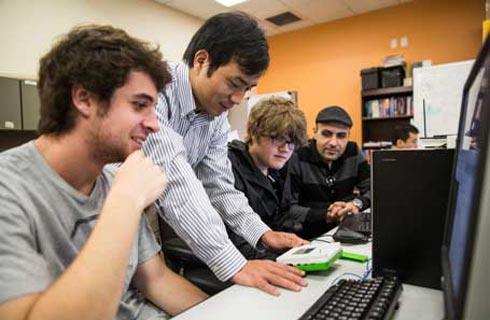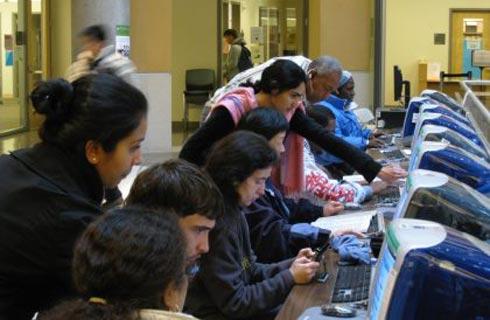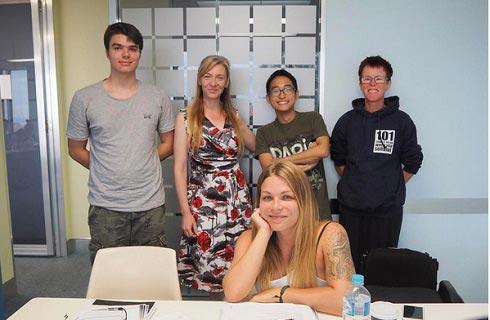Master of Science in Biomedical Engineering - Biomechanics

学历文凭
Masters Degree

专业院系
Department of Bioengineering

开学时间

课程时长

课程学费

国际学生入学条件
IDP—雅思考试联合主办方

雅思考试总分
7.5
- 雅思总分:7.5
- 托福网考总分:90
- 托福笔试总分:160
- 其他语言考试:DUOLINGO : 125 or higher
CRICOS代码:
申请截止日期: 请与IDP联系 以获取详细信息。
课程简介
相关申请
 预科
预科 奖学金
奖学金 实习机会
实习机会 在校学习
在校学习 跨境学习
跨境学习 校园授课-线上开始
校园授课-线上开始 在线/远程学习
在线/远程学习
开学时间&学费
学费信息仅供参考,请与IDP联系以获取详细信息
| 开学时间 | 时长 | 学费 | 地点 |
|---|
学校排名

世界排名201
数据源:
泰晤士高等教育世界大学排名
关于犹他大学

犹他大学位于美国犹他州的盐湖城市,是一所综合性公立大学,由耶稣基督后期圣徒教会信徒建立。学校截止2012年约有30,000学生及4,000多名教职员工。大学共分11部门,获得好评的学科则有商科、传播学、美术、计算机科学、工程、采矿、以及化学等自然科学。犹他大学为美国太平洋十二大联盟会 Pacific-12 Conference(原Pac-10)成员。该联盟目前由由美西十二所著名大学组成,成员包括加州大学伯克利UCB,南加州大学USC,加州大学洛杉矶UCLA,斯坦福大学,亚利桑那大学UA,科罗拉多大学,华盛顿大学UW-Seattle,俄勒冈大学OU等。犹他大学具有完整的学士、 硕士及博士学位,拥有73个系和94个研究学科。在校学生人数约为26000人,分别来自全美50个州和全世界109个国家。犹他大学近八成学生都获得校内兼职工作,因离盐湖城Downtown较近,且有轻轨系统直通校内,学生的校外兼职机会也颇多。学习成绩优异的学生有机会进入学校的荣誉学院Honor College,获得更多的学术研究机会。犹他大学始建于1850年,是美国著名的公立大学之一。该校位于美国犹他州盐湖城,校园依山傍水、风景别致,距离周围的几个国家公园仅三个小时左右的车程,是美国国家公园环境的国家级大学。据抽样调查,1999年盐湖城被评为全美最佳居住城市之一。
本校相关课程

Master of Science in Special Education (with Licensure)
学历文凭
Masters Degree
开学日期
课程费用总额


统计硕士(数学)
学历文凭
Masters Degree
开学日期
课程费用总额


生物统计学统计学硕士
学历文凭
Masters Degree
开学日期
课程费用总额


Master of Social Work (MSW)
学历文凭
Masters Degree
开学日期
课程费用总额


国际事务和全球企业理学硕士
学历文凭
Masters Degree
开学日期
课程费用总额


Master of Arts in Political Science
学历文凭
Masters Degree
开学日期
课程费用总额

其他相关课程

生物医学工程应用科学硕士
 达尔豪斯大学
达尔豪斯大学学历文凭
Masters Degree
开学日期
课程费用总额


生物医学工程技术文凭
 北阿尔伯塔理工学院
北阿尔伯塔理工学院学历文凭
Bachelor Degree
开学日期
课程费用总额


生物医学工程学士学位
 多伦多都会大学
多伦多都会大学学历文凭
Bachelor Degree with Honours
开学日期
课程费用总额


生物医学工程应用科学硕士
 渥太华大学
渥太华大学泰晤士高等教育世界大学排名:188
学历文凭
Masters Degree
开学日期
课程费用总额


工程科学应用科学学士-生物医学工程(荣誉学位)
 西蒙菲莎大学
西蒙菲莎大学学历文凭
Bachelor Degree with Honours
开学日期
课程费用总额


生物医学工程学硕士
 卡尔加里大学
卡尔加里大学学历文凭
Masters Degree
开学日期
课程费用总额










 美国
美国